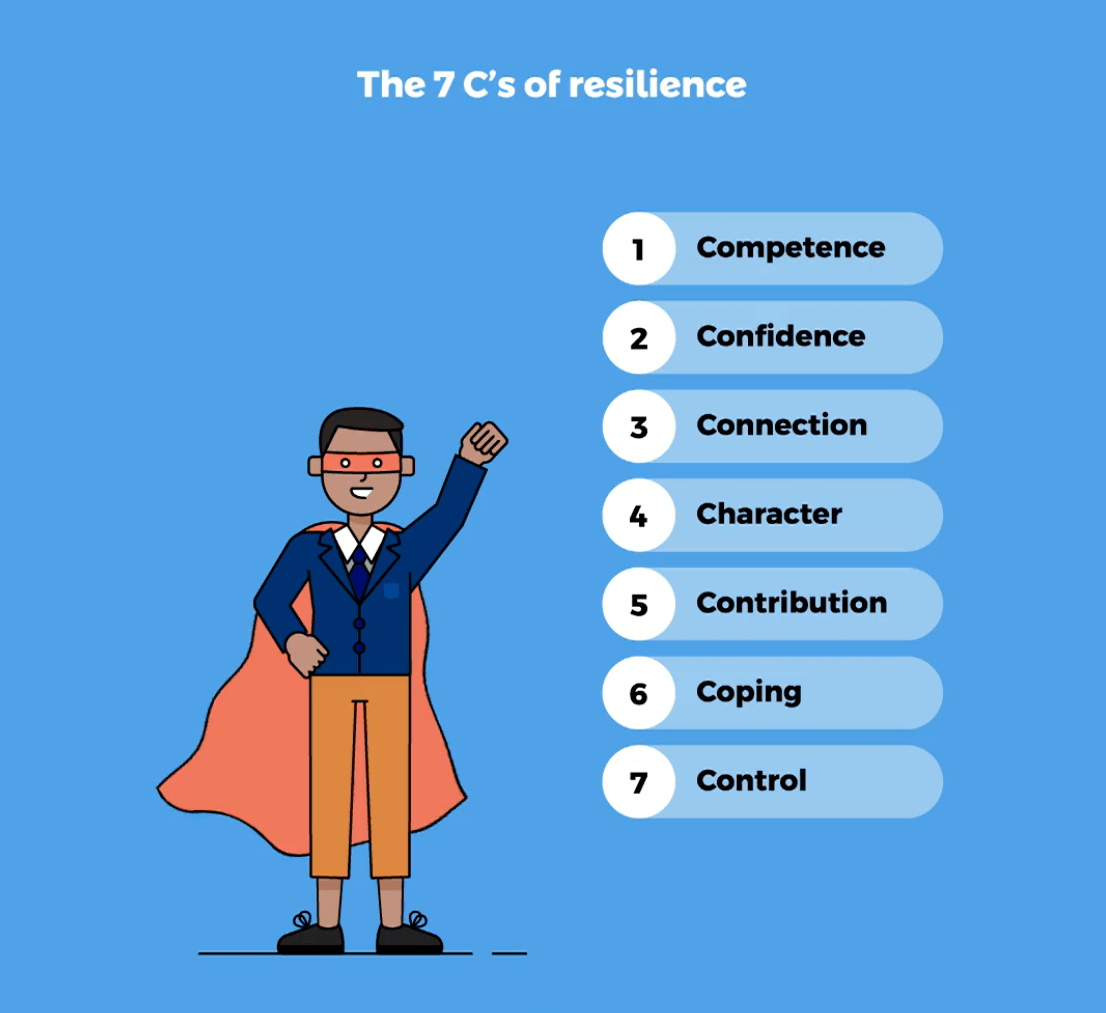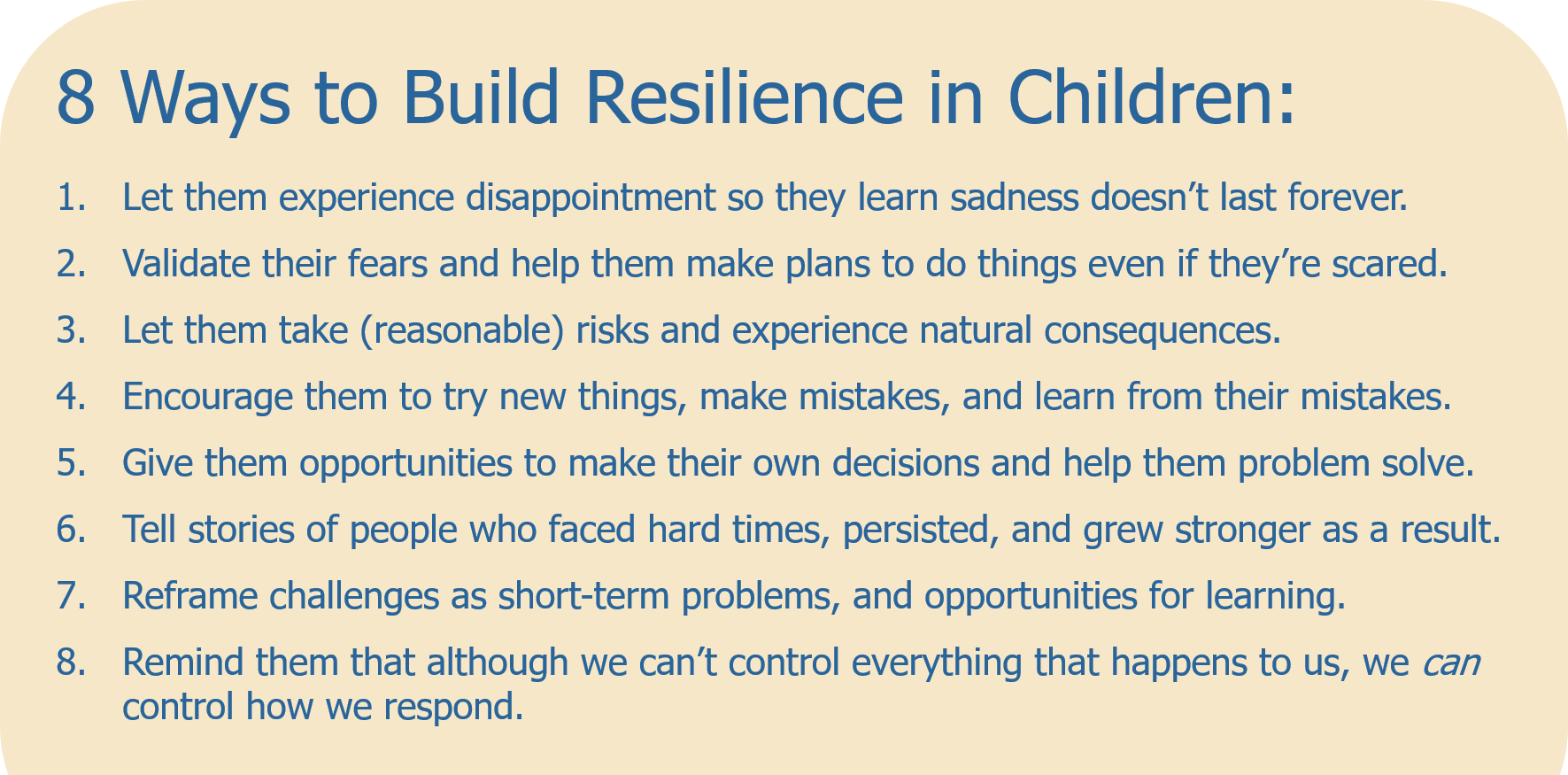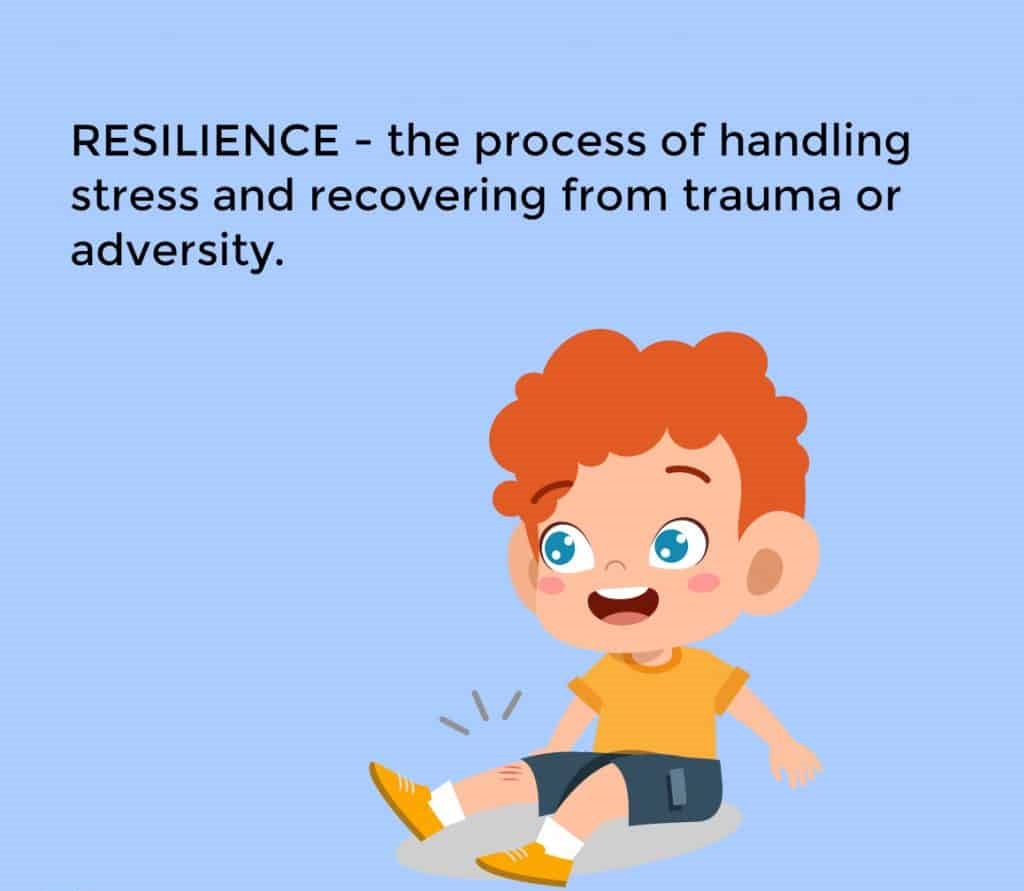In today’s world, it is more important than ever for children to be resilient. With the constant change and chaos in the world, kids need to be able to adapt and bounce back from setbacks. So what is resilience, exactly? And how can we help build it in our children? In this article, we will explore these questions and offer some helpful tips on cultivating resilience in kids.
Contents
Understanding Resilience

Resilience is the ability to adapt and bounce back from setbacks. It is the capacity to cope with adversity and stress and to maintain a positive outlook despite difficulties. Resilience enables children to overcome challenges and emerge stronger than before.
What Is Resilience In Children?
There is no one-size-fits-all answer to this question, as resilience can take different forms in different children. However, there are some common characteristics of resilient children. They are:
- Optimistic and have a positive outlook on life.
- Able to cope with stress and adversity.
- Adaptable and flexible, able to adjust to changing circumstances.
- Have a strong sense of self-efficacy, the belief that they can succeed despite challenges.
Why It Matters?
Resilience is not just a desirable characteristic – it is essential for children’s well-being and success. Resilient children are more likely to thrive academically, emotionally, and socially. They are also better equipped to handle life’s challenges and setbacks.
How Resilience Is Going To Be Important In Times To Come?
The world is changing rapidly, and the skills that children need to succeed are evolving along with it. To thrive in today’s fast-paced, ever-changing world, kids need more than just academic skills – they need to be resilient. Resilience will be essential for them to overcome challenges, setbacks, and failures.
What Are Types Of Resilience?
There are many different types of resilience, and children can be resilient in different areas of their lives. Some common types of resilience include:
- Physical resilience – the ability to bounce back from illness or injury.
- Emotional resilience – the ability to cope with difficult emotions and setbacks.
- Social resilience – the ability to form positive relationships and social networks.
- Behavioral resilience – the ability to adapt to changing circumstances and keep behaving positively.
- Cognitive resilience – the ability to think flexibly and creatively and to learn from mistakes.
- Spiritual resilience – the ability to find meaning and purpose in life despite setbacks.
Which Type Of Resilience Is Most Important And Why?
This is a difficult question to answer, as resilience is important in all areas of a child’s life. However, emotional resilience may be the most important type of resilience, as it enables children to cope with stress and setbacks.
The Seven C’s Of Resilience

There are seven C’s of resilience, which is:
- Control – the belief that we can control our own lives and make a difference.
- Commitment – the commitment to continue trying no matter what obstacles stand in our way.
- Creativity – the ability to find new ways to solve problems and cope with adversity.
- Curiosity – the desire to learn and understand new things.
- Courage – the ability to face difficult emotions and challenges head-on.
- Compassion – the ability to care for others, even in tough situations.
Which One Is The MOST IMPORTANT C In Resilience?
Again, this is a difficult question to answer, as all of the C’s are important. However, commitment may be the most important C in resilience, as it enables children to keep trying no matter what setbacks they encounter.
Building Resilience

So how can we help our children build resilience? Here are some tips:
Encourage optimism and positive thinking: Help your child develop a positive outlook on life and teach them to see setbacks as learning opportunities.
Help them cope with stress: Teach children how to cope with stress in healthy ways, such as by using relaxation techniques, deep breathing exercises, or visualization.
Encourage adaptability and flexibility: Help your child be adaptable and flexible by teaching them to be open to change and to view setbacks as a normal part of life.
Provide emotional support: Offer emotional support and encouragement when your child experiences setbacks or difficulties. Let them know that it is ok to feel sad, angry, or scared – but that they can overcome these feelings.
Encourage self-efficacy: Help your child develop a strong sense of self-efficacy by teaching them that they can succeed despite challenges.
Provide a sense of structure and stability: Help your child create and maintain routines and rituals in their life. This can provide a sense of stability and security during times of stress or chaos.
Make positive connections: Encourage your child to form positive relationships with family, friends, and mentors. These supportive relationships can help children feel supported during difficult times.
Encourage involvement in activities: Encourage your child to participate in activities they enjoy, such as sports, music, or creative arts. This can help them develop a sense of mastery and accomplishment.
Provide positive role models: Look for positive role models for your child, such as adults who have faced and overcome difficult challenges. Show your child that resilience is possible and that there are ways to overcome even the biggest obstacles.
How Positive And Negative Outcomes Impact Development Of Resilience In Children?
Positive outcomes, such as overcoming challenges and succeeding despite difficulties, help to build resilience. Conversely, negative outcomes, such as experiencing stress or failure, can weaken resilience. This is why children need to have plenty of opportunities to experience both positive and negative outcomes.
Cultivating Resilience

Tips For Physical Resilience
Some tips for cultivating physical resilience in children include:
- Encourage them to be active and participate in physical activity. Exercise can help children cope with stress and difficult emotions.
- Encourage them to eat a healthy diet. A balanced diet can help children stay strong and resilient during times of stress.
- Help them get enough sleep. Sleep is essential for overall health and can help children cope with stress.
Tips For Emotional Resilience
Some tips for cultivating emotional resilience in children include:
- Help them develop a strong sense of self-esteem. Teach them that they are valued and loved, no matter what happens.
- Encourage them to express their feelings. Let them know it is ok to feel sad, angry, or scared. Help them understand and cope with their emotions.
- Help them develop a strong sense of empathy. Teach them to understand and care for others, even in difficult situations.
- Help them cultivate a sense of humor. Laughter can be incredibly healing and can help children cope with difficult emotions.
- Encourage them to find meaning and purpose in life. Help them connect their experiences to a larger sense of purpose, even during difficult times.
Tips For Social Resilience
Some tips for cultivating social resilience in children include:
- Encourage them to develop strong relationships with family and friends. These supportive relationships can help them cope with difficult times.
- Encourage them to participate in activities they enjoy. Participation in activities can help children develop a sense of belonging and connection.
- Encourage them to be open-minded and accepting of others. Teach them to respect differences and see the beauty in everyone.
- Help them build a strong sense of empathy. Teach them to understand and care for others, even in difficult situations.
Tips For Behavioral Resilience
Some tips for cultivating behavioral resilience in children include:
- Help them develop a routine and structure in their life. This can provide a sense of stability and security during times of stress or chaos.
- Encourage them to be independent and self-sufficient. Teach them how to problem solve and take care of themselves.
- Help them develop a strong work ethic. Teach them the importance of hard work and perseverance.
- Encourage them to be persistent. Help them learn that it is ok to fail, as long as they keep trying.
Tips For Cognitive Resilience
Some tips for cultivating cognitive resilience in children include:
- Help them develop a strong sense of problem-solving. Teach them how to think critically and logically about difficult situations.
- Encourage them to be flexible and adaptable. Help them learn that change is inevitable and that it is ok to make mistakes.
- Help them develop a strong sense of optimism. Teach them to look for the good in every situation and believe that things will eventually get better.
- Help them develop a strong sense of curiosity. Encourage them to ask questions and explore new ideas.
Tips For Spiritual Resilience
Some tips for cultivating spiritual resilience in children include:
- Encourage them to develop a personal relationship with God or a higher power. This can provide a sense of meaning and purpose during difficult times.
- Encourage them to be grateful for the good in their life. Teaching children to be grateful can help them stay positive and hopeful during difficult times.
- Encourage them to pray or meditate. Prayer and meditation can help children connect with their spiritual side and find peace during difficult times.
Last But Not Least: Encourage positive thinking. Help your child look for the silver lining in every situation and focus on the positives.
Tools For Building Resilience
There are many helpful books, games, and tools for building resilience in children. Here are some recommendations:
Movies:
The Pursuit of Happyness, The Boy Who Harnessed the Wind, The Glass Castle
Books:
The Resilience Factor: How To Succeed In Life Despite Adversity by Dr. Karen Reivich
Building Resilience Activity Book by Barbara Coloroso
Games and Sports:
Bounce Back! A Game for Kids About Handling Difficult Times by Patti Dobrowolski
The Way Back Home: A Story about Overcoming Obstacles and Finding the Strength to Carry On by Jaylen Bledsoe
Other Tools:
The Resilience Toolkit for Kids and Teens: Helping Youth Deal with Stress, Trauma, and Change by Lisa F. Berkman PhD
Experts on the Role of Building Resilience In Children

There are many experts on the role of resilience in children’s development. Here are a few:
Dr. Peggy Drexler – Author and Research Psychologist
Brené Brown – Researcher, TED Talk Speaker, and New York Times Bestselling Author
Angela Duckworth – Professor of Psychology at University of Pennsylvania and 2017 MacArthur Fellow
What Experts Say On Building Resilience In Children?
“The capacity to bounce back from stress and adversity is not a fixed attribute. It can be cultivated through the right kind of care and support.” – Dr. Peggy Drexler
“If you want to build a ship, don’t drum up people to collect wood and don’t assign them tasks and work, but rather teach them to long for the endless immensity of the sea.” – Antoine de Saint-Exupery
Case Study

To better understand the role of resilience in children’s lives, let’s take a look at a case study.
Ms. A is a single mother of two young children. Her son, John, is nine years old and her daughter, Jane, is six. Ms. A works long hours to support her family and does not have much time for herself. Both John and Jane are very active in extracurricular activities, which leaves Ms. A with little time to spend with them outside of school and activities.
John is a high-achieving student and is always pushing himself to do better. He often feels overwhelmed by the demands of school and extracurriculars, and he has started to experience anxiety attacks. Jane is struggling in school and has been diagnosed with ADHD. She has difficulty making friends and tends to lash out at her brother and mother.
The Key Message
In this case study, we can see that John has a great deal of emotional resilience. He can cope with the difficult emotions and setbacks he experiences in his life. Jane, on the other hand, does not have as much emotional resilience. She struggles to cope with her emotions and experiences a lot of stress and anxiety.
We can see that John’s social resilience is also strong. He has a lot of friends and is very active in extracurricular activities. Jane, on the other hand, does not have as many friends and is struggling in school. Her cognitive resilience is also weak, as she has difficulty learning from her mistakes.
Conclusion
Resilience is an important life skill that helps children cope with stress and adversity. It is crucial for children’s emotional, social, and cognitive development. There are many ways to help children cultivate resilience, and parents need to provide a supportive environment in which their children can express themselves freely.
There are many resources available to help parents build resilience in their children, including movies, books, games and sports, and experts on the topic. Parents need to be patient and continue to provide support as their children work to develop resilience.
A Word From Therapy Mantra
Your mental health — Your psychological, emotional, and social well-being — has an impact on every aspect of your life. Positive mental health essentially allows you to effectively deal with life’s everyday challenges.
At TherapyMantra, we have a team of therapists who provide affordable online therapy to assist you with issues such as depression, anxiety, stress, workplace Issues, addiction, relationship, OCD, LGBTQ, and PTSD. You can book a free therapy or download our free Android or iOS app.


